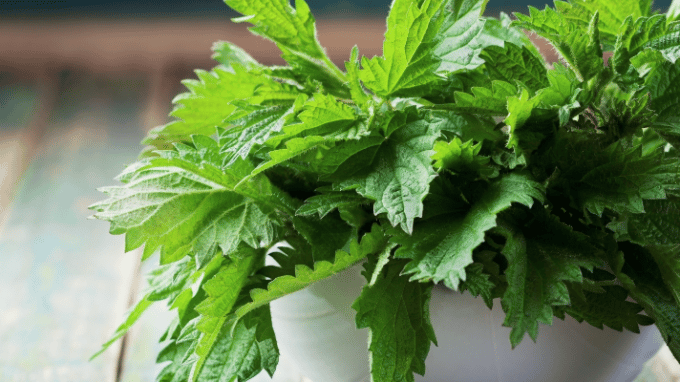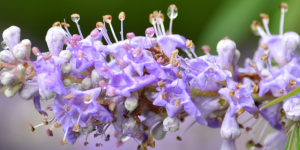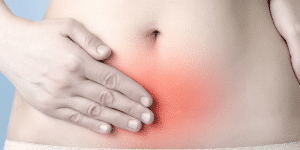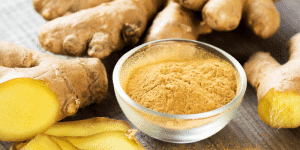Nettle is a popular plant that many people take for its kidney- and liver-strengthening benefits. When it is taken as a tea, it can also remedy menstrual concerns and conditions that can affect fertility, such as endometriosis. This plant has been grown and utilized for centuries for various health benefits.
Nettle is a perennial herb that usually grows in the spring and summer. It belongs to the Urticaceae family of small and medium-sized herbs. The leaves contain high levels of an antioxidant called “apigenin,” which aids in the importance of antioxidant consumption for women with enometriosis. It is also rich in flavonoids such as kaempferol, quercetin and luteolin. Nettle leaves have wide applications as both food and medicine.
Nettle for Endometriosis
Endometriosis occurs when endometrial tissue grows outside the uterus. Normally, this tissue is shed inside the uterus during menstruation. However, this tissue can be found on top of or even within the ovaries, fallopian tubes, bowel or bladder in women with endometriosis.
In endometriosis patients with severe symptoms, diet and herbal remedies may help alleviate the pain and discomfort associated with the disease. If you have endometriosis and are interested in trying a natural remedy, nettle may be right for you!
Nettle May Help Soothe Pain
Endometriosis affects more than 11 percent of women between the age of 15 and 44 in America. This painful disorder can cause many frustrating symptoms, such as chronic nausea and pain during sex. It has a high recurrence rate and is notoriously hard to treat.
Thankfully, there’s one herb that can help to ease the symptoms: nettle! It may be able to help soothe the discomfort caused by endometriosis by reducing inflammation and supporting healthy hormone balance.
Nettle Enhances Endocrinology
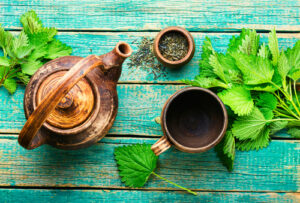
The most important of these is the cytosolic ESR1. This enzyme is involved in regulating the body’s hormones, particularly when they are used as a vital part of metabolism. That is why nettle effectively helps to regulate and balance hormone levels in the body.
This herb may be able to balance estrogen levels, both helping to prevent overproduction and protecting against underproduction, which can occur in women with endometriosis. This is made possible by the plant’s ability to balance natural estrogens and progesterone, which regulate cell growth and hormone production.
This may be due to how well the herb supports estrogen as a vital hormone: It can reduce the adverse effects of estrogen imbalances, which can lead to an improvement in the body’s overall immune system and an improvement in endometriosis symptoms.
Nettle and Endometriosis in Women with PCOS or Polycystic Ovarian Syndrome
There are a number of symptoms that can occur in women with PCOS, including insulin resistance, irregular periods and infertility. While some of these may be caused by endometriosis, they can also be the result of an underlying hormonal imbalance brought on by PCOS.
Nettle can help treat PCOS, and it may also reduce the severity of its symptoms. Based on several studies, nettle may have an anti-inflammatory effect on women with PCOS. Moreover, those women who take nettle supplements have been found to have lower levels of insulin resistance. The result could be a reduction in PCOS symptoms and improvements in fertility.
How Should I Take Nettle?
Nettle tea or infusion is the most common form of consumption. You can use either dried or fresh leaves. There are also many other ways to consume nettle, including boiling or sauteeing it and adding it to meals, in soups, smoothies and more.
Ideally, if you decide to use the herb, always follow the manufacturer’s instructions or the advice of your doctor, pharmacist or other healthcare professional. If taking nettle in supplement form, use only as much of this product as the label instructs.
Nettle is one of the best herbs for endometriosis — and one of the most effective at helping women with both pain and infertility caused by the condition. Because of its estrogen-like properties, it can balance hormone production. This is most beneficial in women suffering from endometriosis — particularly those women whose symptoms are related to overproduction or underproduction of estrogens and progestin. Like all supplements and herbal remedies, be sure to check with a doctor before determining how to incorporate nettle into your daily routine.
